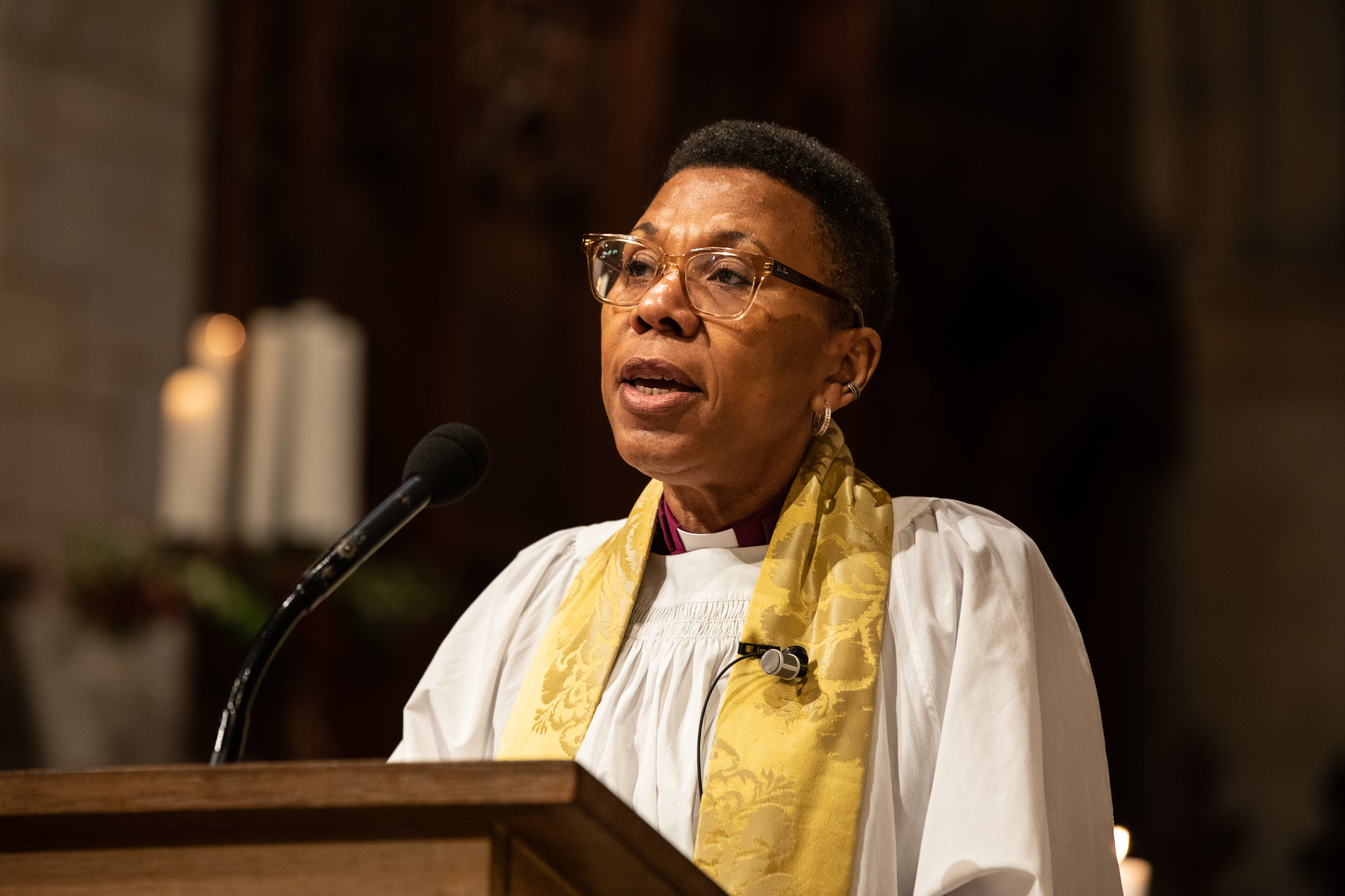Reflection by The Rt Revd Dr Rosemarie Mallett, Bishop of Croydon
Windrush Day is a day set aside, since 2018, to mark and celebrate the contributions of people of Caribbean origin or descent to the building up of the United Kingdom (physically, economically, institutionally, socially and culturally), particularly after World War Two.
I came to England over fifty years ago, not knowing that in doing so I was joining the group of Caribbean ‘arrivants’ that today we call the Windrush generation. I did not arrive on June 22nd, on a boat at Tilbury docks, but as an unaccompanied minor at Heathrow airport, on a BOAC plane on a very cold day in March. I came as a child, but like all those who arrived before, I came with expectations of new opportunities and challenges.
However, the challenges that I and many others have faced since migration have caused quite a few people of the British Caribbean diaspora to disparage the term ‘ Windrush generation’ and see little significance in the day itself, partly because they feel it locks them into a particular episode of history or ties them to an identity which does not encapsulate them, and into a story which is complex and problematic. This is because the story of the Windrush generation is also the story of the Windrush scandal, a story of hostility and rejection.
In the same year that Windrush Day was inaugurated, it came to light that hundreds of older Caribbean migrants, who came as part of the drive to build back post-war Britain, were being threatened with deportation, forced to stop work, some detained, denied legal rights, and some even deported from the UK by the Home Office to a place they no longer called home. Every one of them was told that despite arriving here with British subject passports and living here for decades they did not belong and had no right to be in this country.
That sense of ‘unbelonging’ and the hostile environment of racism and rejection is felt by many of the original generation and their descendants. There can be no Caribbean diaspora person who has not personally faced or known someone who has faced, overt racism, unconscious bias, and racialized arrogance due to skin colour and cultural differences from the mainstream white UK society. And this was no different for those who looked for welcome and hospitality from Christian brothers and sisters. The stories of people being turned away from church doors are well known. Thankfully, this did not stop that generation of migrants from envisioning a place for themselves in whatever aspect of society they wished to succeed in. And it's for this reason that campaigners fought so hard to have Windrush Day recognised.
So on this and every Windrush day, we give thanks to those early pioneers, and we celebrate the successes of those individuals who, with few, if any, role models believed in their talent and skills and most often their God, and often worked hard to overcome prejudice, and advanced themselves, their families and their community. Today we can see the flourishing of leadership and representation of people of colour and those of Caribbean heritage and descent in all aspects of life in this country. In our polity, in the public and private sectors, in civil society and community, in arts, media, theatre, finance, medicine, science and tech, sports and music, and in churches of all denominations. However, though much has changed, there is still a way to go before people can truly feel welcome and accepted, and that they fully belong.
Speaking of the Church of England, there are still too many people feeling bruised by a church that responded too slowly to the recognition of the presence, talents and leadership abilities of the ‘Windrushers’ and their descendants. The Archbishop of Canterbury, Justin Welby said a couple of years ago, “ To be a church that expresses love institutionally, we have to consider the well-being of all”. The church is now on a programme of change-making, moving the church from lamenting past inactivity to making necessary institutional and systemic changes to ensure a more diverse church at every level.
All churches must be places and spaces of belonging for people of every nation and every language who come to church to worship and serve God in mission and ministry. This is the vision of Revelation 7: 9. We are not there yet. However, I say to the naysayers, the truthtellers and the changemakers, let us continue to strive to bring in that kingdom where uniqueness and unity are celebrated, and where that image of every nation, tribe, people and language coming before the throne is our aspirational and inspirational challenge and hope. To everyone, a blessed Windrush Day Amen
Prayer Points:
- That we place belonging at the heart of our witnessing and worshipping – drawing all to the knowledge that we belong to Jesus and to each other.
- That all are truly welcomed and recognised in our churches – in word and deed to play a full part in the life of the church.
- That we seek to discover the gifts and talents of all so that they be encouraged and enabled to offer those to God and to the building up of his kingdom.

